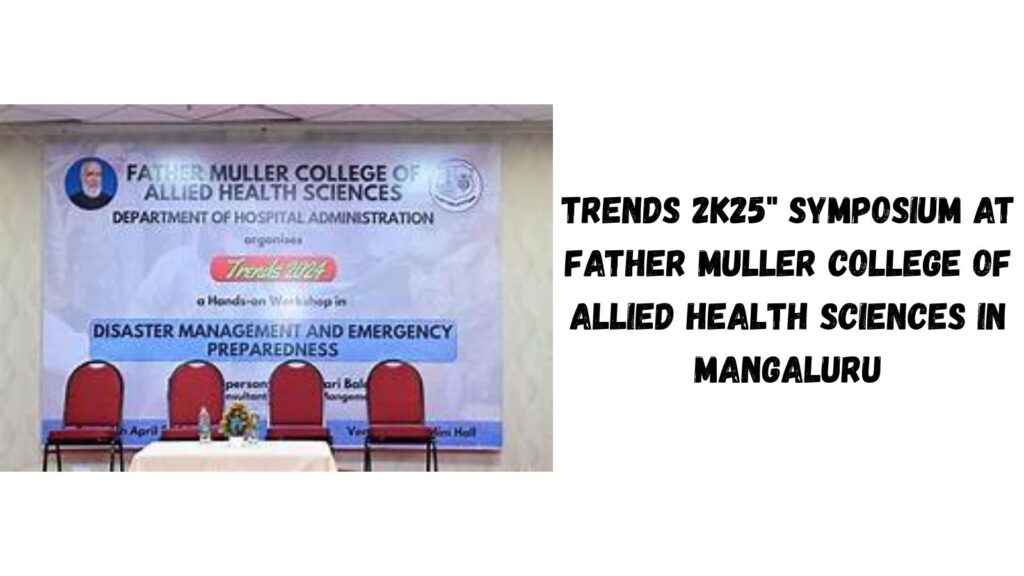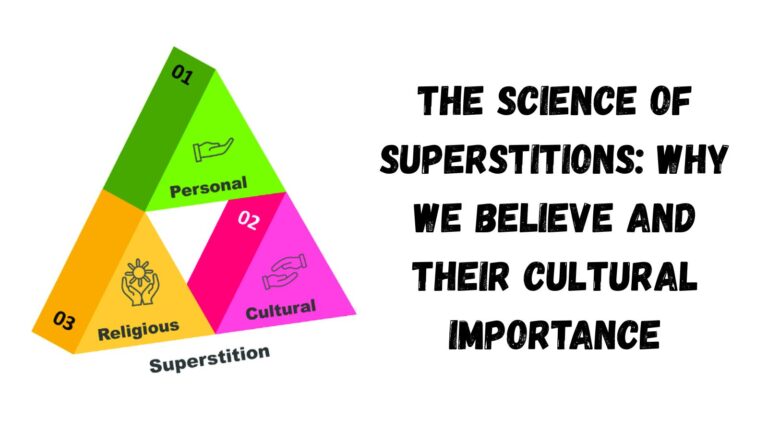Trends 2K25″ symposium at Father Muller College of Allied Health Sciences in Mangaluru
HRM is changing fast. This shift is driven by new technologies, changing employee needs, and the demands of organizations. On April 12, 2025, Father Muller College of Allied Health Sciences (FMCOAHS) in Mangaluru held the “Trends 2K25” symposium.

Inaugural Ceremony
The symposium began with a speech from Steevan Pinto, Chairman of the National Institute of Personnel Management (NIPM). Pinto underscored the nurturing role of HR, likening it to a “motherly figure” that prioritizes employee well-being. He highlighted NIPM’s recent global meeting in Mangaluru. The focus was on “Personnel Management of Workforce in 2047.” He emphasized the need for forward-thinking HR practices.
Fr Ajith B Menezes, Director of FMCOAHS, presided over the ceremony. In his book Soul Stories, he shared the inspiring story of Ismail Siddique. After many tries, Ismail finally found a job. This story illustrates resilience and the value of learning from feedback. Fr. Menezes stressed that empathy, courage, and knowledge are key tools for today’s knowledge-driven workforce.
Keynote Sessions
The symposium featured several insightful sessions:
- Sandeep D’Silva, Senior Principal of Employee Experience at Infosys Ltd, discussed employee relations. He shared strategies for engaging today’s workforce. D’Silva highlighted changes across generations and discussed effective engagement tactics.
- Ivy Saldanha is the Managing Director of Noble Manhattan Coaching Ltd. She explored ways to keep employees, highlighting coaching and personalized development plans. These strategies help retain top talent.
- Jyothi Pinto led a practical session on employee attrition and retention. She shared real experiences from FMCI. Participants gained useful insights on managing workforce dynamics.
Interactive Activities
The symposium offered more than lectures. It included fun activities, like a stress interview competition and a media reporting segment. These activities let students show their HR skills and communication in tough situations. It mirrors real-world HR challenges.
Emerging Trends in HRM
The discussions at the symposium aligned with several key trends shaping the future of HRM:
- Employee Well-being and Mental Health: More organizations see the value in supporting employees’ mental and emotional health. Flexible work arrangements, health benefits, and burnout prevention strategies are now common. Companies like Google and Microsoft offer Employee Assistance Programs (EAPs). These programs give free access to therapists. As a result, employee satisfaction and productivity improve.
- Hybrid Work Models: The hybrid work model, combining remote and in-office work, has become the norm. Organizations are creating strong policies for flexible work. They focus on trust and results instead of just being in the office. Microsoft and similar companies now use hybrid work models. This lets employees pick their work environment. As a result, engagement and retention rates have gone up.
- Continuous Learning and Development: Rapid tech changes make continuous learning vital. It helps keep employees and boosts organizational competitiveness. Companies are prioritizing upskilling and reskilling initiatives to ensure their workforce remains relevant. Amazon plans to invest $700 million in training programs. This will upskill 100,000 workers by 2025. The goal is to enhance their skills and prepare for future challenges.
- Diversity, Equity, and Inclusion (DEI): DEI initiatives are shifting from just compliance to key strategies. Inclusive companies do better than their competitors. HR strategies now focus on DEI in hiring, leadership development, and workplace culture. Salesforce’s Equality Programs, like inclusive hiring workshops and allyship training, boosted global employee satisfaction by 6%.
- HR teams are using people analytics more and more. This shift makes them data-driven, helping them make informed decisions. Tools assist with workforce planning, turnover prediction, and measuring HR ROI. Unilever’s people analytics platform helped the company spot skill gaps. This led to custom training programs and fewer talent shortages.
- AI and Automation in HR Processes: AI is changing HR operations. AI tools help screen candidates quickly. Predictive analytics also improve employee retention. HR teams are leveraging technology to make smarter decisions, enhancing efficiency and effectiveness. Workday’s AI tools help with recruitment. They include “agents,” like chatbots, that handle tasks. This makes the hiring process smoother.
- Focus on Employee Experience: The “employee experience” is becoming a key priority. HR teams look at every step of the employee journey to boost engagement and satisfaction. Companies are putting money into employee experience platforms. These platforms provide integrated dashboards, real-time feedback tools, and engagement analytics. These platforms give employees easy access to benefits, payroll, and training all in one spot. This helps create a positive work environment.
Conclusion
The “Trends 2K25” symposium served as a microcosm of the dynamic shifts occurring in the HR landscape. Organizations face new tech, shifting employee needs, and changing business models. So, HR professionals must adapt and embrace these trends.
The main goal of the “Trends 2K25” symposium was to look at the future of human resource management. It brought together students, teachers, and HR professionals. The event focused on new HR trends. It shared real-world practices and aimed to prepare future HR leaders. These leaders need to adapt to changing workplace dynamics. Factors include technology, employee expectations, and shifts in organizations.
Notable speakers included:
Steevan Pinto (NIPM Chairman): Spoke about HR as a nurturing force and the importance of employee well-being.
Sandeep D’Silva (Infosys): Focused on employee relations and generational engagement strategies.
Ivy Saldanha from Noble Manhattan Coaching pointed out how coaching and personalized development help keep employees.
Jyothi Pinto (FMCI) shared useful tips for managing attrition and boosting retention in healthcare.
The symposium highlighted several key trends:
Mental health and employee well-being initiatives
Hybrid work models
Upskilling and continuous learning
Diversity, equity, and inclusion (DEI)
AI, automation, and people analytics
Enhancing employee experience through tech-driven platforms
Students were involved in interactive activities like:
A stress interview competition, which tested their ability to perform under pressure
A media segment urged participants to use their HR communication and critical thinking skills. These events mimicked real-world HR challenges and boosted practical learning.
“Trends 2K25” is important. It connects academic theory with professional practice. It shows how HR will change in India and around the world. It is a place for teamwork, new ideas, and training tech-savvy HR professionals. This focus is especially important in healthcare and related fields.






